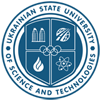FIRST STEPS BEFORE THE JUMP: UKRAINIAN UNIVERSITY LIBRARIANS SURVEY ABOUT OER
DOI:
https://doi.org/10.15802/unilib/2021_248379Keywords:
open educational resources, OER, librarians of Ukrainian universities, survey of librarians, awareness level of librariansAbstract
Objective. The authors study: 1) the level of awareness of librarians of Ukrainian universities about Open Educational Resources (OER); 2) the ability of librarians to provide support services for the development, creation and use of OER in teaching, learning, research. Methods. The study was conducted by methods of analysis of professional literature, online survey (questionnaires) and analysis of the results. The questionnaires “Library of Higher Education Institution in Support of Distance Learning: Open Educational Resources” was distributed from 20.04. until 20.05.2021 among 137 directors of libraries of higher education institutions of Ukraine. Responses came from 77 libraries. The questionnaire consisted of 9 open-ended and closed-ended questions to allow researchers to get a holistic picture of the research process. Results. The analysis of 77 questionnaires showed that the vast majority of free HEI libraries in Ukraine have extensive experience in working with electronic educational resources. Ranking by resource type prove that 95.89% of library collections are the own generation resources (HEI authors): databases, incl. repositories. The concept of "Open Educational Resources" (OERs) is familiar and understandable to 84.42% of respondents. At the same time, 75.32% are already involved in supporting the OER. Librarians may catalog them (21.92%) or not catalog (32.88%). Among the OER types supported by librarians, educational materials (77.05%) and textbooks (55.74%) predominate. The closest partnership of librarians in OER support (except for teachers) is with the specialists of IT services (66.13%). Conclusions. Despite the still spontaneous, chaotic and little-studied nature of the library movement towards OER, librarians are well aware of this issue. At the same time, 96.1% of respondents want to improve their competencies in the direction of supporting open educational resources. This is very important, because it is the understanding and acceptance of OER that is crucial for a long-term vision of this movement. That is why specific aspects, such as organizational, economic, personnel and motivational, need urgent further study.
References
Calilung, R. (2020). Perceptions and Practices of Academic Libraries in Handling and Managing Open Education Resources (OERs): Basis for Capacity Building Plan. University Library at a New Stage of Social Communications Development. Conference Proceedings, 5, 53-67. doi: https://doi.org/10.15802/unilib/2020_220361 (in English)
European Network of Open Education Librarians (ENOEL). (n.d.). Retriеved from https://sparceurope.org/what-we-do/open-education/europeannetwork-openeducation-librarians/ (in English)
Ferguson, C. (2017). Open Educational Resources and Institutional Repositories. Faculty & Staff Research and Creative Activity, 55. Retriеved from https://digitalcommons.murraystate.edu/faculty/55 (in English)
Kolesnykova, T. (2021a). Resursy otkrytogo dostupa kak klyuch k globalnomu izmeneniyu v obrazovanii: rol universitetskikh bibliotek [Open Access Resources as Key to Global Change in Education: The Role of University Libraries]. Biblijatečny Vieśnik, 13, 43-53. Retriеved from http://eadnurt.diit.edu.ua/jspui/handle/123456789/14279 (in Russian)
Kolesnykova, T. O. (2019). The Role of Libraries as Publishers in the Open Education Landscape: Reflecting Modern World Practice of Open Textbooks. University Library at a New Stage of Social Communications Development. Conference Proceedings, 4, 88-99. doi: https://doi.org/10.15802/unilib/2019_187423 (in English)
Kolesnykova, T. O. (2021b). Vidkryti Osvitni Resursy (OER): rolj universytetsjkykh bibliotek [Open Educational Resources (OER): The Role of University Libraries]. Anti-School of University Librarians: Lesson 4. UBA, Dnipro National University of Railway Transport named after Academician V. Lazaryan. Dnipro. Retriеved from http://eadnurt.diit.edu.ua/jspui/handle/123456789/14148 (in Ukrainian)
Nawazish, M., & Batool, S. H. (2021). Framing the New Role of Information Professionals: investigating Copyright Literacy Levels and Awareness of Academic Librarians in Pakistan. Academic Librarianship. doi: https://doi.org/10.1080/13614533.2021.1906716 (in English)
Nwaohiri, N. M. (2021). Open Educational Resources (OER) in Nigerian Universities: Promotion and Awareness Opportunities for Academic Libraries for a Path to Higher Education Success. Library Philosophy and Practice, 5583. Retriеved from https://digitalcommons.unl.edu/libphilprac/5583 (in English)
Sustainable Development Goal 4. (n.d.). Retriеved from: https://en.wikipedia.org/wiki/Sustainable_Development_Goal_4 (in English)
Thompson, S. D., & Muir, A. (2019). A case study investigation of academic library support for open educational resources in Scottish universities. Journal of Librarianship and Information Science, 52(3), 685-693. https://doi.org/10.1177/0961000619871604 (in English)
UNESCO. (2019, November 25). Recommendation on Open Educational Resources (OER). Retriеved from: http://portal.unesco.org/en/ev.php-URL_ID=49556&URL_DO=DO_TOPIC&URL_SECTION=201.html (in English)
Published
How to Cite
Issue
Section
License
Copyright (c) 2021 Tetiana O. KOLESNYKOVA, Olena V. MATVEYEVA

This work is licensed under a Creative Commons Attribution 4.0 International License.







